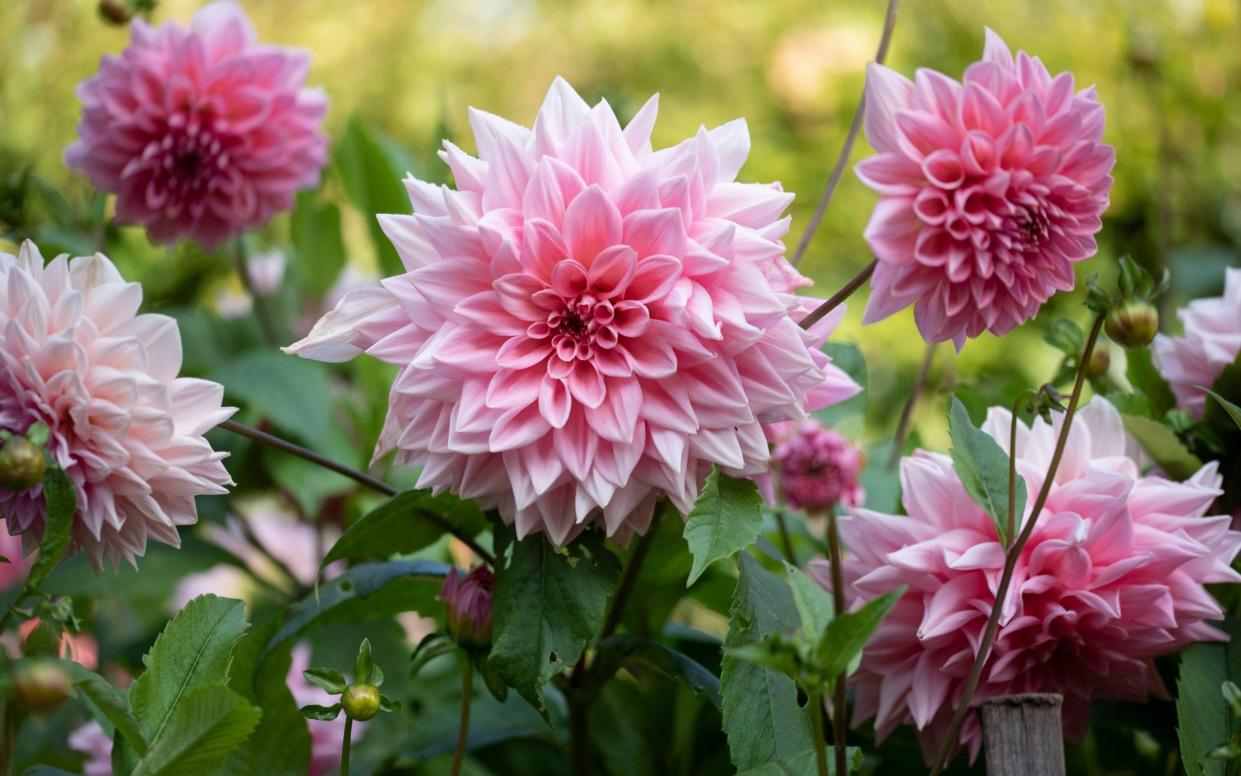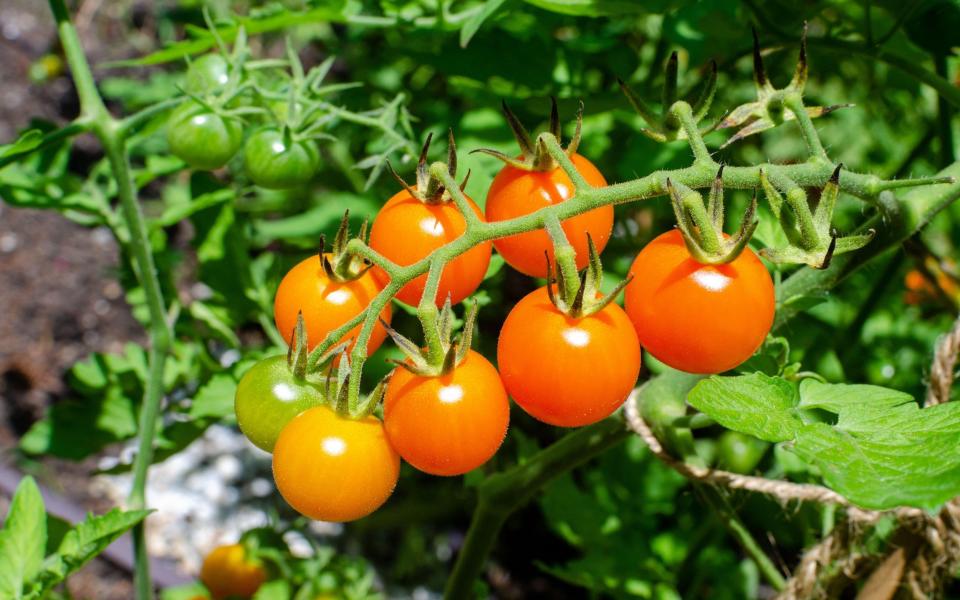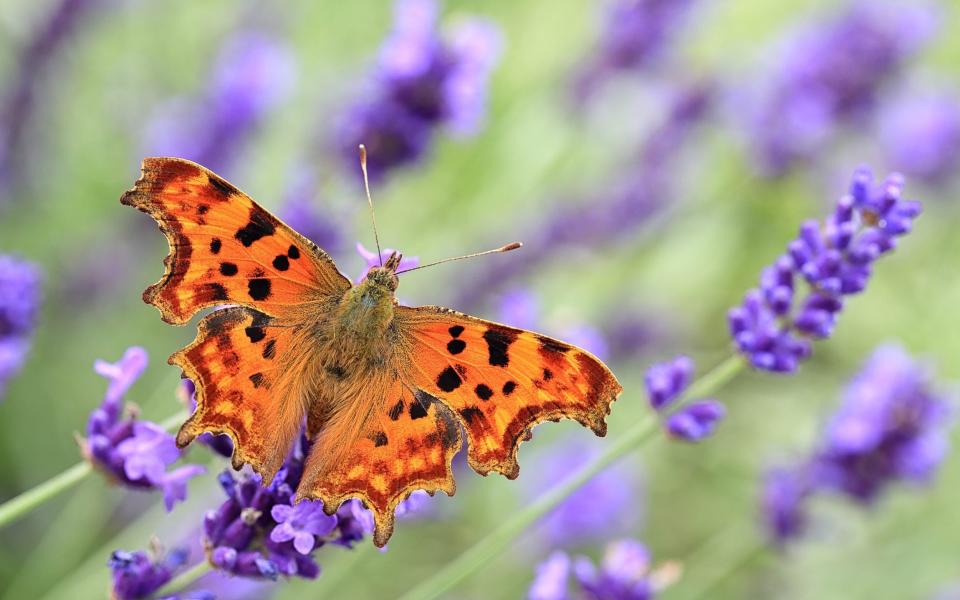Gardening jobs in August: what to plant and tidy in your garden this month

This is usually the hottest month of the year and unless you have planned carefully it can also be a moment when the garden starts to look a bit tired and lacking in flowers. However, this is easy to remedy, and colourful stunners such as dahlias, sunflowers, crocosmia and cannas step up now, while gardens planted in a subtropical style are reaching their height.
The vegetable garden is hugely productive this month, and added to the outdoor bounty is the beginnings of the luxurious greenhouse harvest: tomatoes, aubergines and peppers are beginning to ripen.
With kids on summer holidays, this is (again, usually) the time that a great many gardens get their most use all year, and come into their own as a place for playing, sunbathing, footballing, splashing about in paddling pools and barbecuing. Invite people into your garden this month while the days are still long and the living is easy, and show off all that you have achieved.
Gardening jobs to do in August
Borders
Now that lavender plants have finished flowering it is time to give them a bit of a tidy up. Cut off the spent flowers and then use a pair of shears to lightly trim the plant all over. It is important not to cut back into hard wood, as lavenders often fail to grow back from this, but a light trim will stimulate growth further down the plant, keep the plant looking bushy and full, and help to prolong its life. You can trim large and straggly lavenders but they are very hard to rejuvenate once past a certain point. They are fairly short-lived plants and you may do better to dig up and start again with a fresh young plant.
The greenhouse
The time left for ripening tomatoes is limited, and you will get better results if you force your plants to concentrate on ripening a limited number of trusses, rather than allowing them to keep on flowering and starting new fruits into late August and September. You do this by counting the number of tomatoes that have set and ‘stopping’ the plant, or cutting the stem, above the top truss. On larger tomatoes, stop the plant after four or five trusses. On cherry tomatoes you may get up to eight trusses to ripen. You should still be watering daily and feeding weekly throughout August.

Patio pots
The survival of scented pelargoniums is a bit touch and go through winter: they are too tender to be left outside but do not relish the heated indoor environment. They can sometimes be easier to keep alive as young plants, and this is the time to take new cuttings, which will at the very least increase your stock so that it doesn’t matter if you lose a few. Take cuttings 3-4inches long, strip off the lower leaves, push into a pot of gritty compost, label and water well. They should root quickly in the warmth of August. Grow them in a cold greenhouse for now but move them indoors to a sunny windowsill when the weather cools.
Wildlife
August is the breeding season for many of our butterflies and you can expect to see plenty of them on the wing. If there aren’t many visiting your garden you might consider introducing some butterfly friendly plants. Buddleias are the ultimate butterfly friendly plant, and are known as the ‘butterfly bush’ because butterflies flock to them for their abundant nectar, produced all summer long. Plant one in a sunny but sheltered spot – butterflies like to bask where there is little wind that might harm their delicate wings.

The fruit garden
It is time to cut down any raspberry canes that have already borne fruit this summer. Summer fruiting raspberries bear fruit on new growth, and so there is no purpose in keeping the old ones hanging around. Cut them down flush with the ground, and then select up to eight of the new canes that have been produced this summer, and tie them in, along horizontal wires, cutting the rest back to ground level. The chosen ones will bear fruit next summer.
Houseplants
Houseplants can suffer when you are away on holiday, particularly now, during the warmest month of the year. If you are going to be away for a few days then just give them a good watering before you go, but for any longer you should move them into one place together, ideally a cool, north facing room where they will not get too much direct sunlight. Make sure each has a saucer. Grouped like this they will help to create a moist microclimate and prevent excessive evaporation. If going for more than a week you could group them together in the bath and fill it with a couple of inches of cold water.
Flowering shrubs
This is the month that rhododendrons and camellias begin to form the flower buds that will bloom next spring, and if it happens to coincide with a dry spell, fewer will be formed and you will have a less impressive spring display. It is worth watering them well even if there has been rain, and whether they are growing in pots or in the ground (though it is even more important in pots) as their dense growth can stop rain from easily reaching the roots.
Herbs
Take ‘semi-ripe’ cuttings of woody herbs such as rosemary, thyme, lemon verbena, lavender and sage now in order to bulk up your stock or to make gifts for friends. Cut pieces of non-flowering plant material up to 5in long, taken just below a leaf node, the point from which leaves or buds appear. Nip off the top pair of leaves, down to just above a leaf node, then strip off almost all of the lower leaves, leaving just a few leaves at the top. Make a hole in a pot of well drained compost and drop the cutting in, firming around it and watering well. Keep in a cool greenhouse or on an indoor windowsill all winter and plant out next spring.
This article is kept updated with the latest information.


